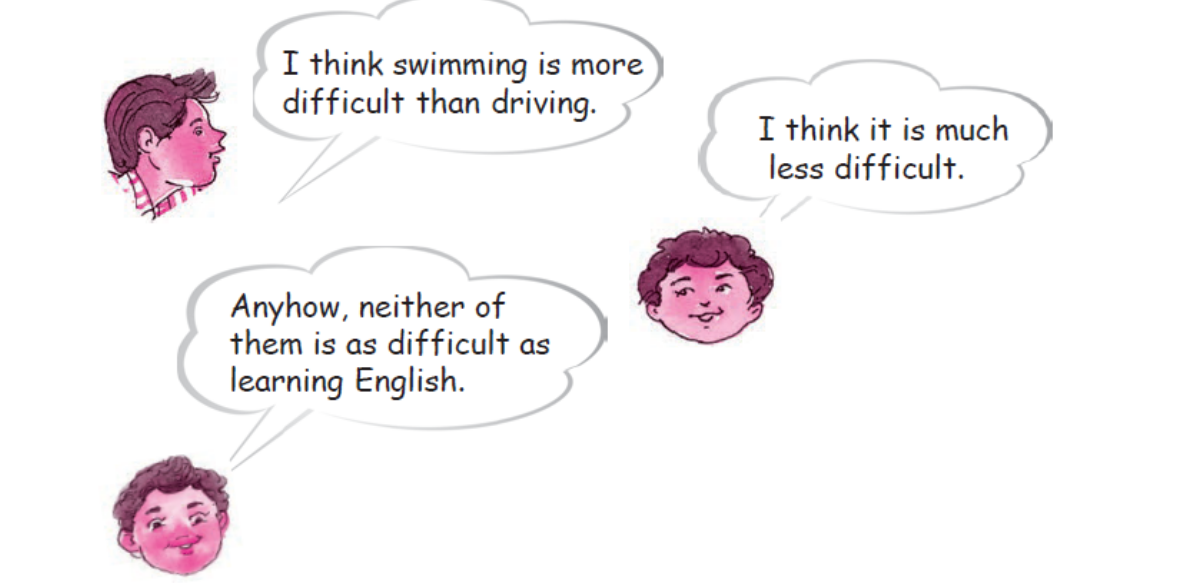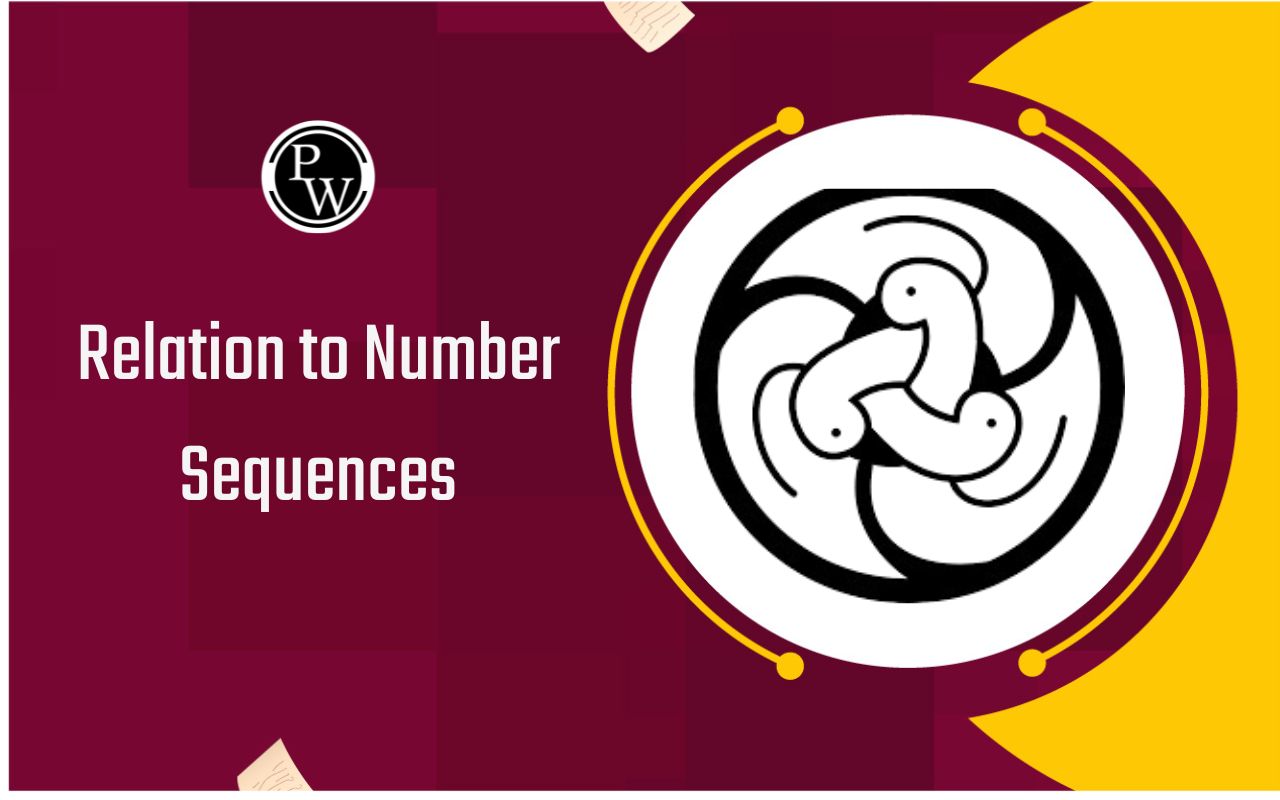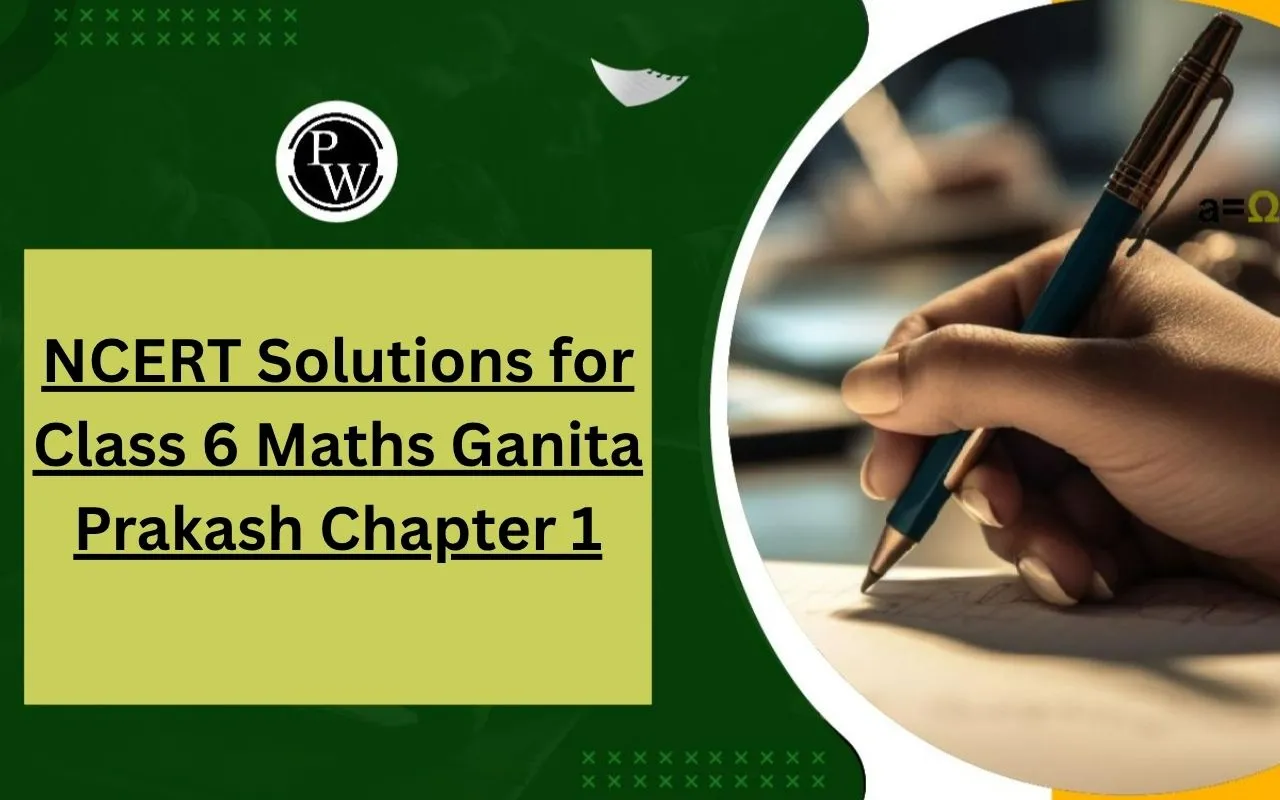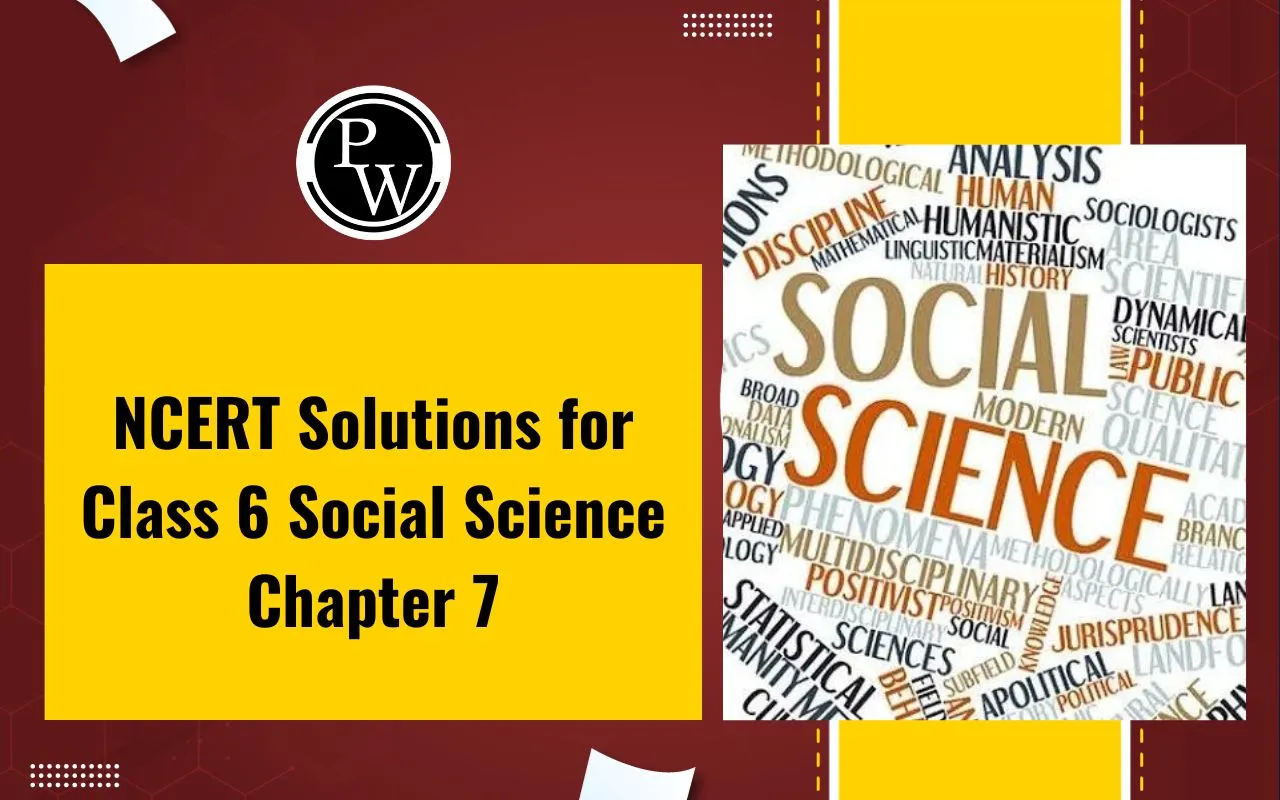
NCERT Solutions for Class 6 English Honeysuckle Chapter 3
NCERT Solutions For Class 6 English Honeysuckle Chapter 3: Explore our meticulously crafted and precise NCERT Solutions For Class 6 English Honeysuckle Chapter 3 Taro’s Reward on PhysicsWallah. These solutions are designed to assist students in confidently preparing for and tackling the English exam. Our expert teachers have carefully curated the NCERT Solutions For Class 6 English Honeysuckle Chapter 3 to offer top-notch assistance to students in this class. The narrative of "Taro’s Reward" revolves around Taro, an industrious and devoted son to his parents. He diligently strives to fulfil his parents' desires and receives an unexpected reward. This chapter imparts the valuable lesson that hard work yields results and emphasises the importance of honouring and obeying parents. For a more in-depth understanding of the story, students can freely access the NCERT Solutions provided.NCERT Solutions For Class 6 English Honeysuckle Chapter 3 PDF Download
NCERT Solutions For Class 6 English Honeysuckle Chapter 3 Working with the text (Pages 34-35)
Answer the following questions. Question 1: Why did Taro run in the direction of the stream? (5) Answer: Taro hurried towards the stream because he felt really thirsty. In that area of the woods, he had never come across a fast-flowing stream or listened to the sound of water falling before. Question 2: How did Taro’s father show his happiness after drinking saké? (7) Answer: Taro's dad felt really happy with the saké. When he took a sip, he stopped shaking and got full of energy. He even danced a bit in the middle of the room. Question 3: Why did the waterfall give Taro saké and others water? (12) Answer: The waterfall provided Taro with saké and gave water to others because Taro was a kind and responsible son to his parents. He always served his parents with commitment and honesty. The saké from the waterfall was a gift for his kindness. In contrast, the folks in his village received regular water because they were selfish. Question 4: Why did the villagers want to drown Taro? (10, 11) Answer: When the villagers went to the waterfall with large pitchers and containers to gather saké, they only received ordinary water from the waterfall. They believed that Taro had deceived and fooled them. Consequently, they chose to penalise him by submerging him in the same waterfall. Question 5: Why did the Emperor reward Taro? (13) Answer: Taro was a devoted son to his parents, always serving them faithfully. The Emperor gave him twenty pieces of gold as a reward for his goodness and kindness to his parents. The Emperor even named the fountain after Taro. This reward was the Emperor's way of saying Taro is a good example for all kids, encouraging them to love, respect, and listen to their parents.NCERT Solutions for Class 6 English Honeysuckle
Mark the right item. 1. Taro earned very little money because (i) he didn’t work hard enough. (ii) the villagers didn’t need wood. (iii) the price of wood was very low. 2. Taro decided to earn extra money (i) to live a more comfortable life. (ii) to buy his old father some saké. (iii) to repair the cracks in the hut. 3. The neighbour left Taro’s hut in a hurry because (i) she was delighted with the drink. (ii) she was astonished to hear Taro’s story. (iii) she wanted to tell the whole village about the waterfall. Answer: 1. Taro earned very little money because (iii) the price of wood was very low. 2. Taro decided to earn extra money (ii) to buy his old father some saké. 3. The neighbour left Taro’s hut in a hurry because (iii) she wanted to tell the whole village about the waterfall.NCERT Solutions for Class 6 English Honeysuckle Chapter 1
NCERT Solutions For Class 6 English Honeysuckle Chapter 3 Working with language (Pages 35-36)
Question A: Strike off the words in the box below that are not suitable. Taro wanted to give his old parents everything they needed. This shows that he was …| thoughtful | hardworking | loving | honest |
| considerate | trustworthy | efficient | kind |
NCERT Solutions for Class 6 English Honeysuckle Chapter 10
Question C: Arrange the words below in pairs that rhyme. Example: young – lung money – sunny| young | sad | money | chop | lung | last |
| wax | could | bad | sound | axe | wood |
| way | stop | sunny | fast | round | day |
| sad | bad |
| chop | stop |
| last | fast |
| wax | axe |
| could | wood |
| sound | round |
| way | day |
| lonely | little | hard | young |
| thoughtful | delicious | beautiful | |
NCERT Solutions for Class 6 English Honeysuckle Chapter 2
2. Find these sentences in the story and fill in the blanks. (i) This made Taro ——————–——— more than ever. (3) (ii) He decided to work ——————–——— than before. (3) (iii) Next morning, Taro jumped out of bed ——————–——— than usual.(4) (iv) He began to chop even ——————–———. (4) (v) Next morning, Taro started work even ——————–——— more than the morning before. (10) Answer: (i) This made Taro sadder than ever. (ii) He decided to work harder than before. (iii) Next morning, Taro jumped out of bed earlier than usual. (iv) He began to chop even faster. (v) Next morning, Taro started work even earlier than the morning before.NCERT Solutions For Class 6 English Honeysuckle Chapter 3 Speaking and Writing (Pages 36-37)
Question A: Speak the following sentences clearly but as quickly as you can. Learn them by heart. (i) How much wood would a woodchuck chuck if a woodchuck would chuck wood? (ii) Betty bought a bit of butter, but the bit of butter was a little bitter so she bought some better butter to make the bitter butter better. Answer: Activity to be done by yourself. Question B: The story ‘Taro’s Reward’ shows that Taro is thoughtful, hardworking and also wise. Read aloud the parts of the story that show these qualities in Taro. (i) Like Patrick in the story ‘Who Did Patrick’s Homework’, Taro is helped by magic. Do you believe in magic? What are the magical things that happen in these stories? (ii) Which story do you like better, and why? Do you know such stories in other languages? Discuss these questions in class.NCERT Solutions for Class 6 English Honeysuckle Chapter 9
3. Now write a paragraph or two about these two stories, comparing them. Answer:- Throughout the day, he cut wood in the woods. Despite putting in a lot of effort, he didn't make much money. This made him unhappy because he cared about his parents and wished to provide them with all they required.
- Sure thing! I do trust in magic. However, I understand it's about doing practised tricks. In Patrick's tale, there's a helpful elf assisting with homework. In Taro's story, enchanting things occur when the water from the lovely little waterfall behind the rocks has a taste similar to saké.
- To be honest, I enjoy both stories because they're interesting and have a touch of magic. But, I really value Taro's tale because it teaches us a big lesson that working hard pays off, and we should respect and obey our parents who sacrifice a lot for us.
NCERT Solutions for Class 6 English Honeysuckle Chapter 4
Question C: Listen to these children. What are they talking about? Answer:
The three boys are talking about their challenges. The first boy thinks that swimming is harder than driving. The second boy has a different opinion, believing that swimming is easier than driving. On the other hand, the third boy believes that learning English is the toughest compared to swimming and driving.
2. Work in groups. Come to an agreement on each of the activities given below. Decide which is the most interesting, dullest, most dangerous, safest, most rewarding, most exciting.
Answer:
The three boys are talking about their challenges. The first boy thinks that swimming is harder than driving. The second boy has a different opinion, believing that swimming is easier than driving. On the other hand, the third boy believes that learning English is the toughest compared to swimming and driving.
2. Work in groups. Come to an agreement on each of the activities given below. Decide which is the most interesting, dullest, most dangerous, safest, most rewarding, most exciting.
| cooking | fishing | playing football |
| knitting | dancing | listening to music |
| reading | sewing | mountain climbing |
| walking | swimming | learning languages |
| painting | watching TV | stamp collecting |
NCERT Solutions for Class 6 English Honeysuckle Chapter 5
Dictation (Page 38) Question 1: Your teacher will speak the words given below. Write against each two new words that rhyme with it.- bed —–———–———— —–———–————
- wax —–———–———— —–———–————
- fast —–———–———— —–———–————
- chop —–———–———— —–———–————
- young —–———–———— —–———–————
- bed red, shed
- wax axe, tax
- fast last, cast
- chop hop, shop
- young tongue, unsung
NCERT Solutions for Class 6 English Honeysuckle Chapter 8
NCERT Solutions For Class 6 English Honeysuckle Chapter 3 Extra Questions
SHORT ANSWER TYPE QUESTIONS
1. Who was Taro? What was his most endearing quality?
Ans: Taro was a young person who cut wood. He didn't have much money, but he worked a lot. He really wanted to take care of his elderly parents and make them happy. That was his biggest quality. 2. What did Taro’s father wish for one cold day? Ans: Taro's elderly father felt cold and shivered. He hoped for a cup of sake to warm his body and comfort his heart. 3. How did Taro manage to meet the demand of his father? Ans.: Taro didn't have cash to purchase costly sake. Hence, he started working more, chopping wood. With divine aid, he received sake freely flowing from a waterfall. His father drank it, felt warmth, and began dancing. 4. How did the villagers come to know of the magic waterfall? Ans: The elderly man gave a lady a cup of sake and shared news about finding a magical waterfall. She told the entire village about it. 5. How did the villagers react after tasting the water of the magic waterfall? Ans: They tried the water and discovered it was just cold water. They felt upset and mad. They chose to put Taro in the stream for fooling them. 6. How did the Emperor of Japan reward Taro? Ans: The Emperor gave Taro 20 gold pieces as a reward for his kindness. Additionally, he named the prettiest fountain in the city after Taro.NCERT Solutions for Class 6 English Honeysuckle Chapter 6
LONG ANSWER TYPE QUESTIONS
1. Bring out some of the sterling qualities of the character of Taro.
Or Give a character sketch of Taro. Ans: Taro, a young woodcutter, lived with his parents on a hill. Although he worked tirelessly, his earnings were meagre. Taro deeply cared for his elderly parents. One evening, his father, feeling cold, expressed a desire for sale. Taro worked even harder to afford the expensive drink. Fortunately, a helpful deity appeared. Taro discovered a waterfall with water that tasted like magical sake. He joyfully gave the special drink to his father, thinking he had fulfilled his wish. When the greedy villagers tried the waterfall, they only found ordinary water. Angry and feeling deceived, they wanted to harm Taro. However, clever Taro hid behind a rock and escaped. Eventually, he received a well-deserved reward from the Emperor of Japan. 2. How did Taro meet the demands of his father? Ans: Taro, a young lumberjack, respected, loved, and followed his parents' wishes. Even though he didn't make much money, he wanted to fulfil his father's desire for sake on a chilly evening. Taro worked even more diligently to increase his earnings. Fortunately, luck was on his side, and he found a waterfall with water that tastes like sake. He filled a pitcher with this special drink to satisfy his father's wish. 3. Why- did the magic waterfall disappoint other villagers? What reward did Taro get and from whom? Ans: The waterfall was a wonderful gift from God. It came as a prize for Taro's hard work and love for his parents. The chilly water seemed like sake to the elderly man. However, the villagers who were too greedy didn't find anything special; to them, it was just regular cold water. The news about Taro's amazing find of the magical waterfall even reached the Emperor of Japan. In appreciation for Taro's devoted service to his parents, the Emperor gave him gold coins as a reward.NCERT Solutions for Class 6 English Honeysuckle Chapter 3 FAQs
Are there interactive platforms offering discussions on NCERT Solutions?
Yes, many online platforms host discussions and forums where students can engage, ask questions, and share insights related to NCERT Solutions for collaborative learning.
Can NCERT Solutions be used for revision before exams?
Certainly! NCERT Solutions serve as a concise revision guide, summarising key points and providing quick reviews to reinforce knowledge before exams.
Do NCERT Solutions offer solutions to all exercises in Chapter 3?
Yes, NCERT Solutions cover all exercises comprehensively, ensuring students have a thorough understanding of the entire chapter.
How do NCERT Solutions contribute to better exam performance?
NCERT Solutions contribute to better exam performance by providing clarity on concepts, improving problem-solving skills, and aiding in effective time management during exams.
Can NCERT Solutions be accessed offline?
Yes, NCERT Solutions are often available in print format or can be downloaded for offline use, providing flexibility for students with varying study preferences.
Talk to a counsellorHave doubts? Our support team will be happy to assist you!

Free Learning Resources
PW Books
Notes (Class 10-12)
PW Study Materials
Notes (Class 6-9)
Ncert Solutions
Govt Exams
Class 6th to 12th Online Courses
Govt Job Exams Courses
UPSC Coaching
Defence Exam Coaching
Gate Exam Coaching
Other Exams
Know about Physics Wallah
Physics Wallah is an Indian edtech platform that provides accessible & comprehensive learning experiences to students from Class 6th to postgraduate level. We also provide extensive NCERT solutions, sample paper, NEET, JEE Mains, BITSAT previous year papers & more such resources to students. Physics Wallah also caters to over 3.5 million registered students and over 78 lakh+ Youtube subscribers with 4.8 rating on its app.
We Stand Out because
We provide students with intensive courses with India’s qualified & experienced faculties & mentors. PW strives to make the learning experience comprehensive and accessible for students of all sections of society. We believe in empowering every single student who couldn't dream of a good career in engineering and medical field earlier.
Our Key Focus Areas
Physics Wallah's main focus is to make the learning experience as economical as possible for all students. With our affordable courses like Lakshya, Udaan and Arjuna and many others, we have been able to provide a platform for lakhs of aspirants. From providing Chemistry, Maths, Physics formula to giving e-books of eminent authors like RD Sharma, RS Aggarwal and Lakhmir Singh, PW focuses on every single student's need for preparation.
What Makes Us Different
Physics Wallah strives to develop a comprehensive pedagogical structure for students, where they get a state-of-the-art learning experience with study material and resources. Apart from catering students preparing for JEE Mains and NEET, PW also provides study material for each state board like Uttar Pradesh, Bihar, and others
Copyright © 2026 Physicswallah Limited All rights reserved.







